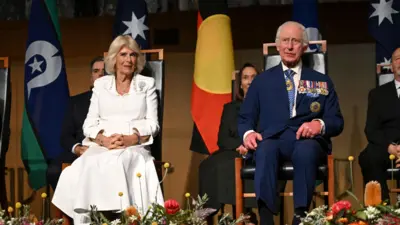We've updated our Privacy and Cookies Policy
We've made some important changes to our Privacy and Cookies Policy and we want you to know what this means for you and your data.
India all-party talks fail to end parliament deadlock
An all-party meeting in India has failed to break a parliamentary deadlock over opposition demands for an inquiry into an alleged telecoms scam.
Parliament has been adjourned for two weeks because of the stand-off.
Telecommunications minister A Raja quit last week, denying claims that he had undersold mobile phone licences by billions of dollars.
The government has ruled out a joint inquiry, saying "impartial" agencies were already investigating.
Correspondents say the widening scandal involving the allocation of second-generation (2G) mobile phone licences is fast becoming a major challenge for the Indian government.
The opposition has blocked parliamentary business for days, with legislation unable to be passed.
Finance Minister Pranab Mukherjee said that the government had offered the opposition parties a committee comprising elected members of the parliament assisted by investigative agencies to probe the alleged scam.
"But the opposition did not agree with our suggestion and stuck to their demand for a probe by a joint parliamentary committee," Mr Mukherjee said.
Correspondents say a joint parliamentary committee, made up of senior MPS, would have a more comprehensive and expanded role in investigating the alleged scam.
Over the weekend Prime Minister Manmohan Singh rejected accusations that he had acted too slowly over prosecuting Mr Raja.
India's Supreme Court wanted Mr Singh to explain 16 months of "alleged inaction" over a scandal involving the sale of mobile phone licences.
Mr Singh said anyone found guilty over the scandal would be punished.
Mr Raja had presided over the world's fastest growing mobile market; there are about half a billion mobile phone subscribers in India.
Top Stories
More to explore
Most read
Content is not available








